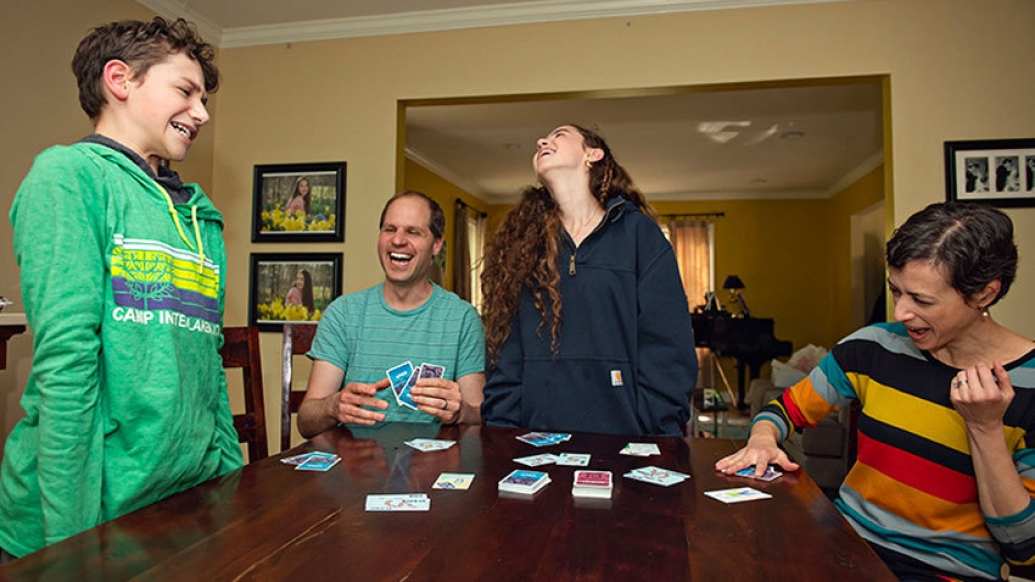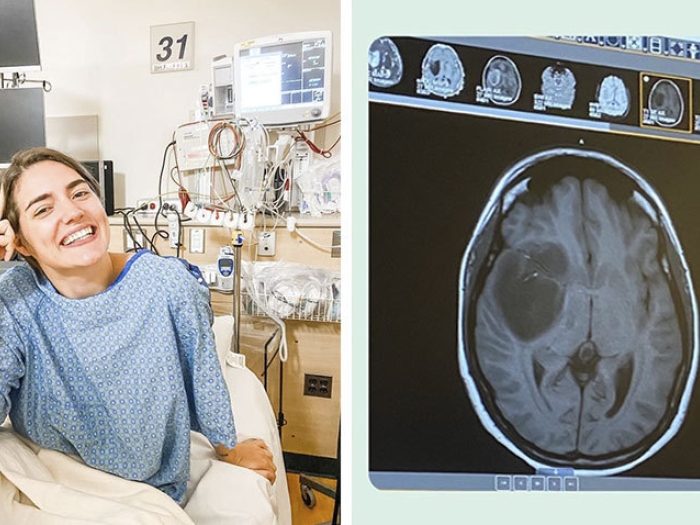A professor that takes complex problems seriously, but also enjoys a good game.
5:00 AM
Author |

This story originally appeared in Medicine at Michigan.
Recently, a patient came to see Zachary London, M.D., because she had an episode where she couldn't stop laughing for two days. The problem stumped London, the James W. Albers Collegiate professor of neurology.
"I have to talk to people and figure that out, it's fascinating," London said.
Puzzling out the answer to complex problems is part of why he chose to specialize in neuromuscular neurology — and, at a time that is particularly stressful for health care workers, it helps him avoid burnout.
"I'm not always going to be great at solving every problem, but I'm never not going to be interested in it," London said.
London has transferred that fascination to medical education as well. He's helped develop two mobile apps to teach neuroanatomic localization. That's figuring out where a problem is located along the path between a malfunctioning body part and the brain.
Like Podcasts? Add the Michigan Medicine News Break on Spotify, Apple Podcasts or anywhere you listen to podcasts.
"For instance, if a patient has numbness one side of the face and the other side of the body, the problem has to be in the brainstem," he said. "A lot of people who go into neurology really geek out about this. We like to figure out where the problem is before we figure out what the problem is."
As the neurology residency program director (when medical students graduate, they have an option to apply to a "residency" program in which they can continue to train within a certain health care field), London spends about half his work time focusing on medical education. That's why he created apps to help medical students learn these complex pathways.
London feels privileged to be able to do scholarly work in a nontraditional way. His department has been supportive of his work, and he says being able to approach neurology education in an innovative way keeps him excited and motivated to mentor others.
Playing outside work
London also is into board games, which is undoubtedly an understatement.
He and his family committed to trying one new board game per day at the beginning of the pandemic. They ended up playing about 130 games and even ranked them on a website.
"We have the family score, and then we separated out kid favorites from adult favorites," London said. "The kids don't like the games that take two-and-a-half hours to play."
He has co-designed his own strategy board game about neuroanatomy, "The Lesion: Charcot's Tournament." It's set in the 19th century and the characters are neurologists who have diseases named after them.
"You don't have to know neurology to play it," he said. "But it helps."
London recently finished creating "The Plexus," a card game designed to increase a player's familiarity with the brachial plexus, which "every med student lives in terror of," and "you have to learn it several times before it sticks."
He even wrote a song to accompany the game. In fact, London has been writing and publishing one song a month since 1993.
As with "The Lesion," you don't have to know neurology to play "The Plexus."
"Even though 'The Plexus' is aimed at medical students and residents, the first time I taught my son how to play, he beat me," London said.
This article is additionally edited by Ridhima Kodali.
Live your healthiest life: Get tips from top experts weekly. Subscribe to the Michigan Health blog newsletter
Headlines from the frontlines: The power of scientific discovery harnessed and delivered to your inbox every week. Subscribe to the Michigan Health Lab blog newsletter

Explore a variety of healthcare news & stories by visiting the Health Lab home page for more articles.

Department of Communication at Michigan Medicine
Want top health & research news weekly? Sign up for Health Lab’s newsletters today!





